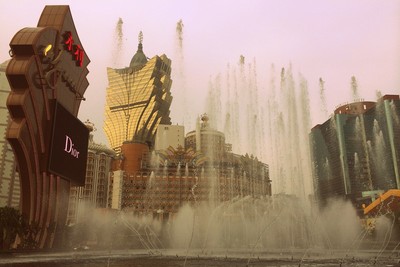 A number of key casino brands in Macau have decided to close their VIP rooms in the wake of Chinese authorities clamping down on so-called ‘junkets’.
A number of key casino brands in Macau have decided to close their VIP rooms in the wake of Chinese authorities clamping down on so-called ‘junkets’.
Regulators have arrested Alvin Chau, the chief executive of the resort’s major junket provider, Suncity Group. He has been accused of running an illegal online betting ring, as well as establishing a prohibited overseas gambling platform.
As a consequence, Suncity have closed all of their VIP gaming rooms, and according to reports have even informed employees they may not be paid over fears of a lack of equity.
Perhaps as a pre-emptive strike, key casino brands in Macau have now decided to pull the plug on their own VIP facilities, with both Wynn and Melco reportedly informing their junket operators that their services will no longer be required from December 20 onwards.
Designed to lure high rolling casino gamers from the mainland to the legal gambling region, junkets are not exactly flavour of the month with the Chinese government. The authorities are looking to close the loophole that allows citizens from China to gamble, and already law-makers in Macau are proactively looking to ward off legislative action.
It’s believed that a tightening of the law is incoming, and the hope is that will prevent further intervention from China if Macau officials can convince them they are taking matters seriously. They have already banned junket operators from offering credit services to their clientele.
But with around $2.2 billion – that’s roughly £1.6 billion – being brought into the casinos’ coffers by junkets every year, it will be interesting to see if a balance can be struck between appeasing shareholders and the regulators.
What are Casino Junkets?

A casino junket operator is basically a premium travel agency service, sorting out flights, transfers and accommodation for their clients. But the difference here is that the operator is also employed by a casino chain to lure high rollers and VIPs to their tables.
While casinos themselves host VIP tables and put on games designed for high rollers, it’s the junkets that actually bring in an estimated 75% of all VIP gaming revenue each year. Once upon a time, the casino brands would even give junket operators chips in order to entice players, but that practice has since been outlawed.
The premise behind junkets is simple, if not expressly described as such – they are geared towards attracting Chinese natives from the mainland, where gambling is prohibited, to the bright lights of Macau, where they spend more than £1.5 billion annually. However, government officials in China are concerned that this is a method used by criminals to launder their money.
Another downside for casino brands is that they are legally bound to take responsibility for the junket operators that drive traffic their way, which perhaps explains why Wynn and Melco were so eager to pull the plug on their VIP operations in the wake of Chau’s arrest.
The next likely move is that more casino chains will cut ties with their junket operators, while devoting more space on their gaming floors to VIP and high roller action. By keeping things in-house, the firms may just evade further legislative action on the part of the authorities.
